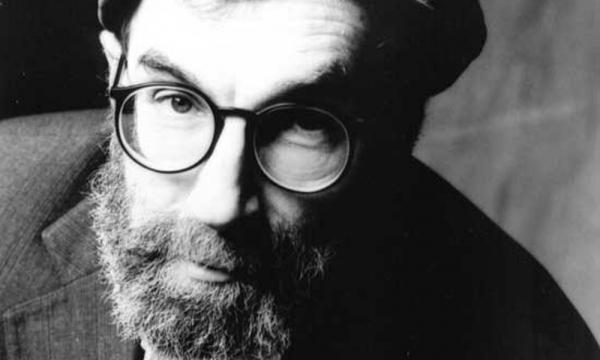REDISCOVER the Music You Love

January 20, 2016
Aficionados and fans know that good music rewards repeated listening, and that is certainly true of the Milken Archive's extensive collection of music of American Jewish experience. So today, we're launching our REDISCOVER series, to help our newer subscribers discover recordings they may not know and our long-time followers rediscover works they once loved but may have lost touch with—all while sharing the remarkable stories within each piece.
REDISCOVER the "Meltingly Beautiful" Music of Paul Schoenfield
Many composers draw on folk music, but Paul Schoenfield does it in a singular way. He does not simply utilize the idioms and motifs to add color. He combines folk music’s soulfulness and spirit of freedom with his own intricate and often knotty approach to composition, frequently combining ideas from entirely different worlds. Our eponymously titled album of his music, Paul Schoenfield, illustrates several manifestations of this unique approach that revels in the joy, sorrow and mystery of Jewish life and folklore.
Concerto for Viola and Orchestra is emblematic of Schoenfield’s innately eclectic style, especially of his fusion of Western art forms with Israeli and eastern European Jewish folk and liturgical music. Commissioned by the Cleveland Orchestra for its principle violist, Robert Vernon, Schoenfield composed the concerto in Israel, where at the time, he was living above a kindergarten. He based the piece primarily on melodies he heard the young students singing, the sources of which ranged from common children’s songs to Hassidic liturgical pieces. It’s a work of both deep lyricism and stunning virtuosity.
In one of the first reconsiderations of Renaissance polyphony in connection with sacred Hebrew texts, Four Motets bridges a 400-year gap that separates the pioneering work of Salomone Rossi and the present era. This a cappella suite of choral settings from Psalm 86 conveys a quintessentially Renaissance form recast in the harmonic language of the 20th century.
The album concludes with three scenes from the composer’s two-act opera, The Merchant and the Pauper, based on a Hassidic tale by Reb Nacḥman of Bratslav. The plot involves a wealthy merchant who supports a pauper and his wife, and it is eventually arranged that the merchant’s son and the pauper’s daughter will marry. But when the pauper becomes emperor and is lavished with gifts from suitors hoping to marry his uncommonly beautiful daughter, he tries to get rid of the merchant’s son. The tale dates to 1809 and is considered a multilayered allegory of exile and messianic redemption. The work’s deep spirituality profoundly affected soprano Jennifer Larson, who described it as a piece that “glows with the pure love of God.” (Hear it in her words in a Milken Archive video documentary below.) A New York Times review of the opera’s 1999 St. Louis premiere aptly described its music as “meltingly beautiful.”
|
|
|



